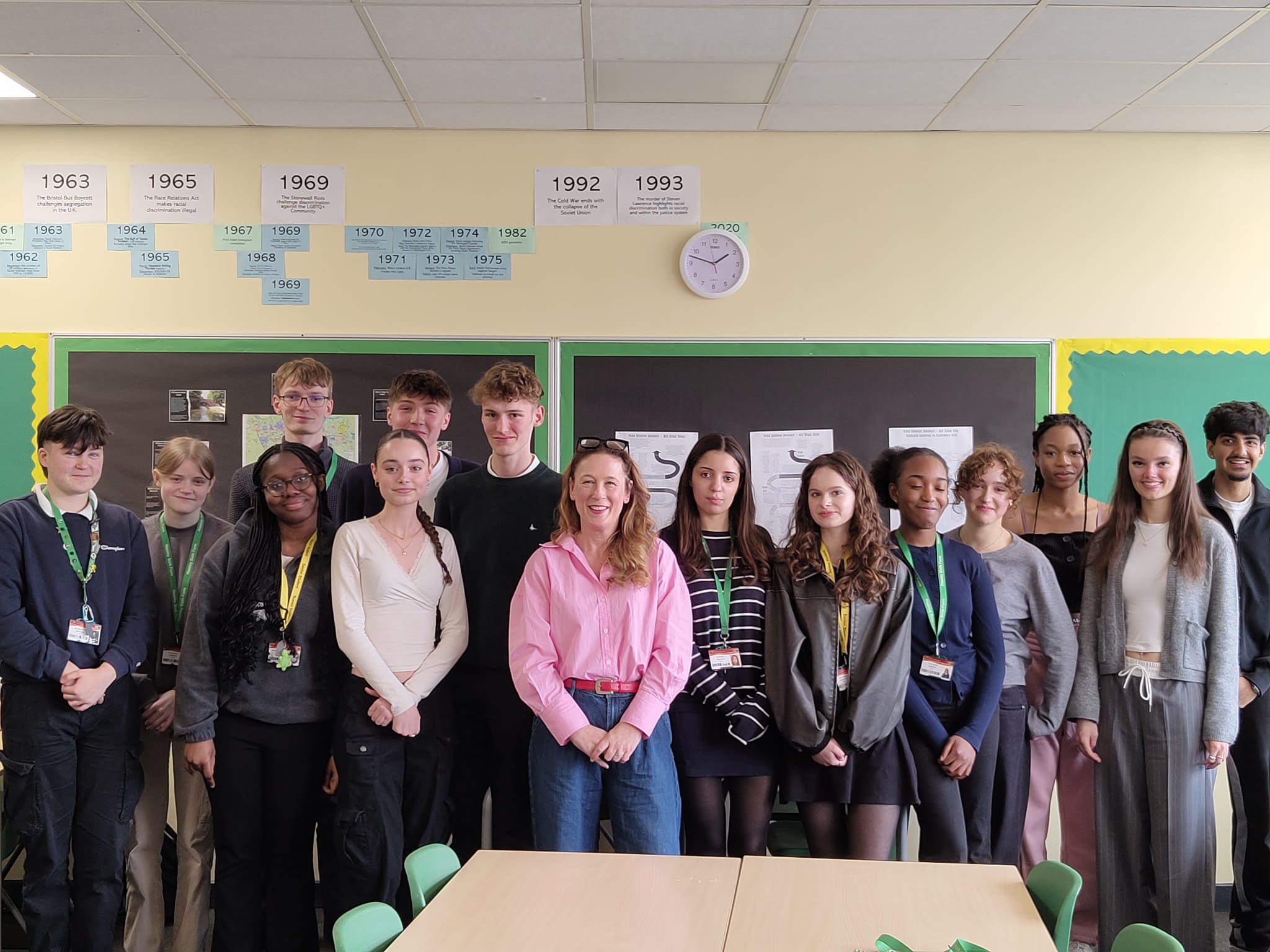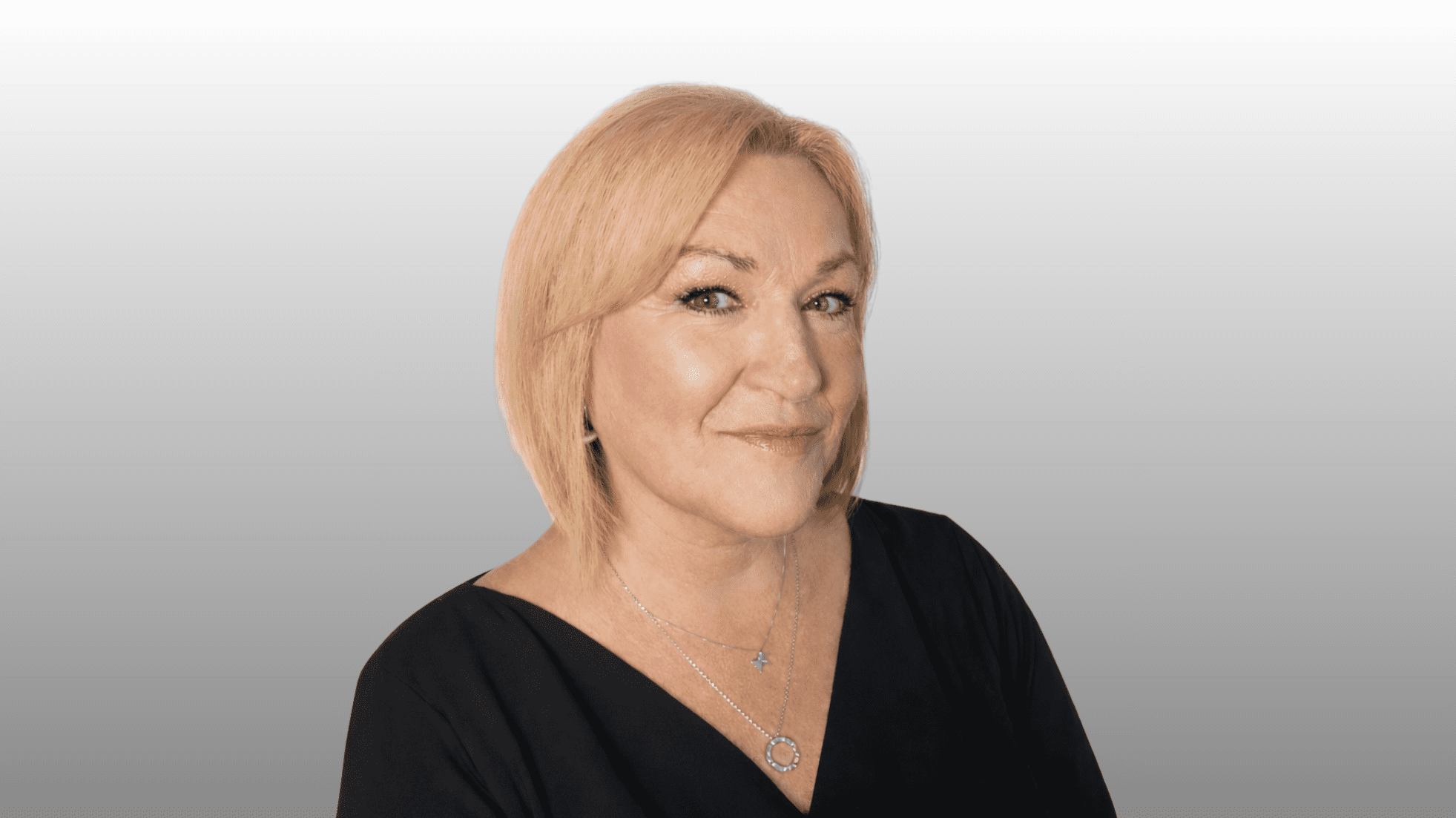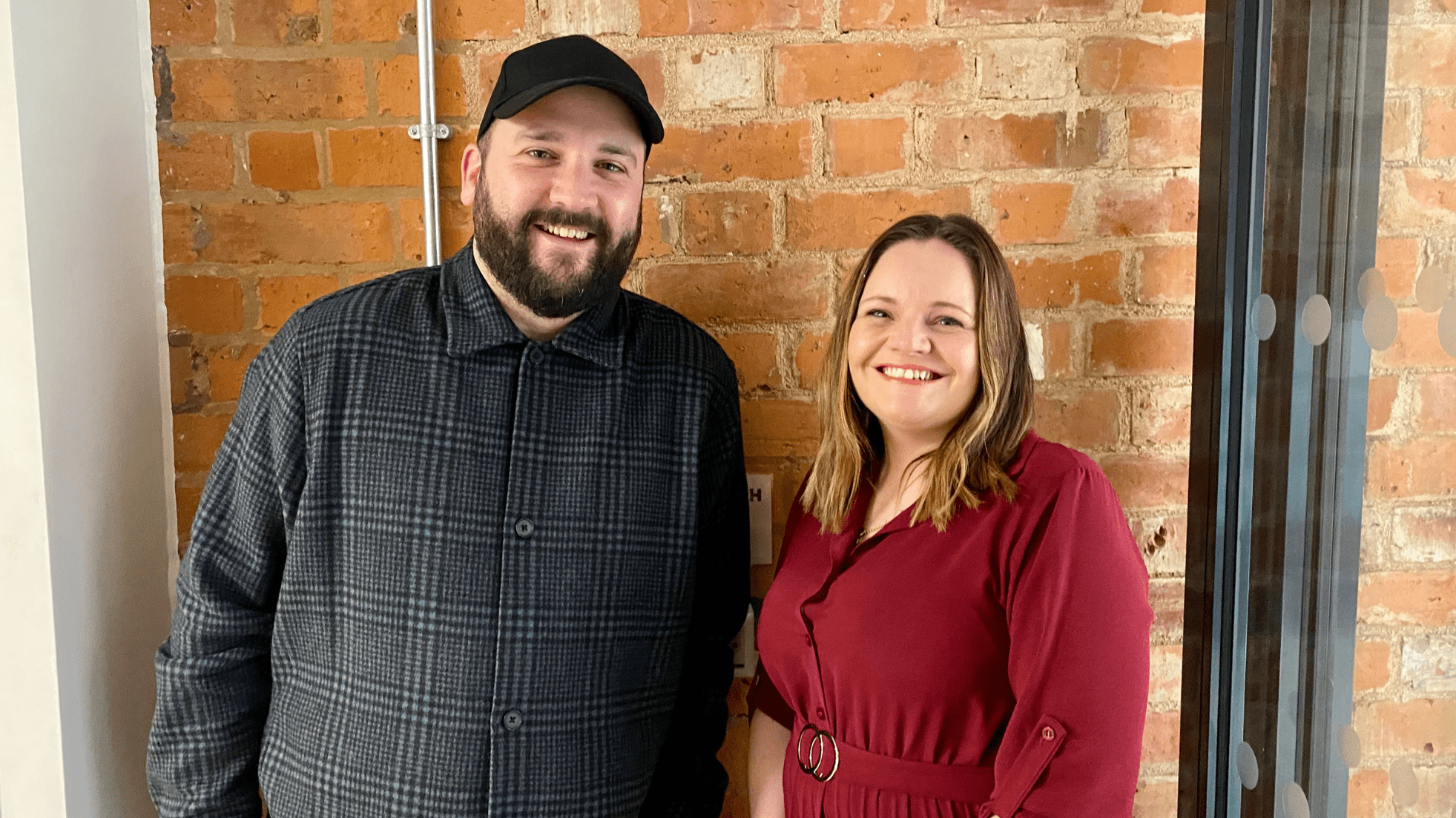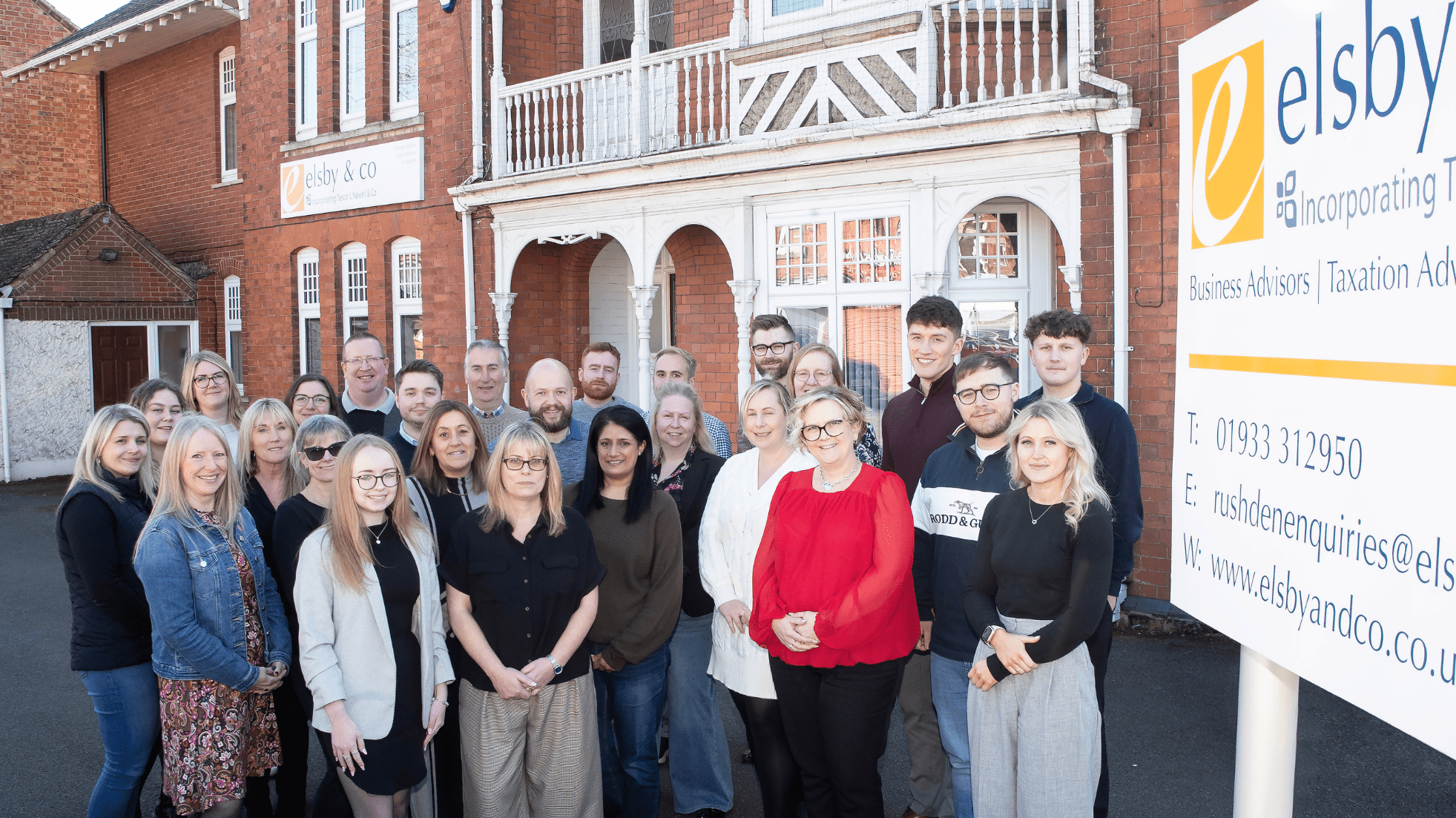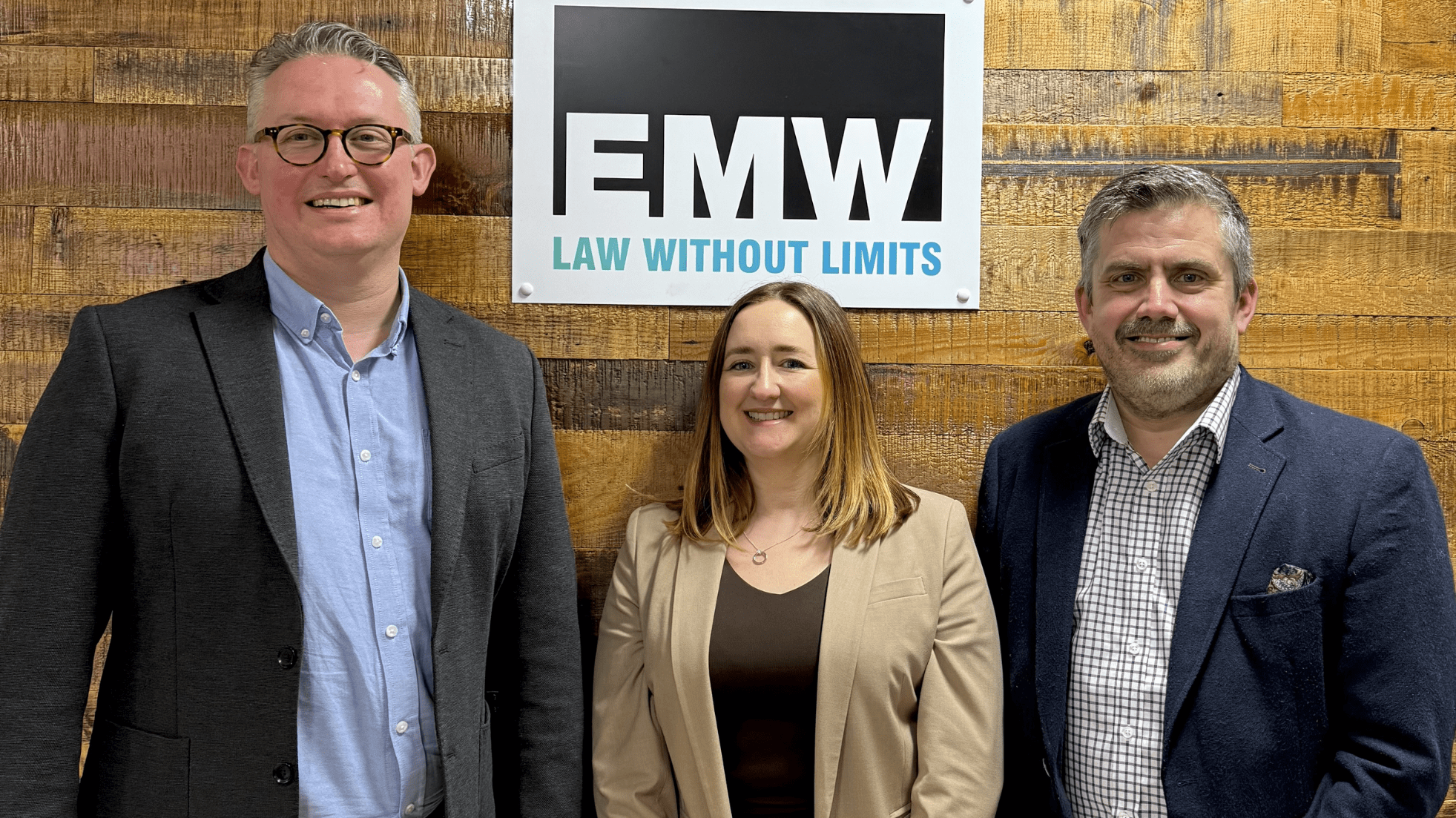A year into what she herself describes as a love-hate relationship, Emily Darlington MP completed 12 months in office having, it seems, enjoyed rather more of what she loves about politics than what she hates.
So much so that this summer, 36 young people from her Milton Keynes constituency will have the chance to take part in her summer schools, introducing them to how politics works to resolve or support the issues that matter to them, so that they can get an insider’s view of life as an MP and what goes on in the House of Commons.
With that, and the progress towards her goal of seeing both her home city and Parliament itself becoming accredited by the White Ribbon Campaign to end violence against women and girls, there’s a sense of achievement around Emily’s first year in office.
Elected last July as the Labour MP for Milton Keynes Central, after serving as a councillor of Milton Keynes City Council, Emily Darlington has drawn on her background in strategic communications and international development to work hard to improve the life chances for all sections of society.
“I went in believing there were a lot of things I didn’t like about Parliament, and that turned out to be true,” she said. “It’s a bit of a love-hate relationship. What bothers me that this place behaves like it’s some old boarding school, like it’s not a place for a certain type of person. It feels like somewhere you need know the rules before you start, even when they’re unwritten rules, and where parliamentary committees seem to care more about what shoes you’re wearing than what you’re saying and doing.
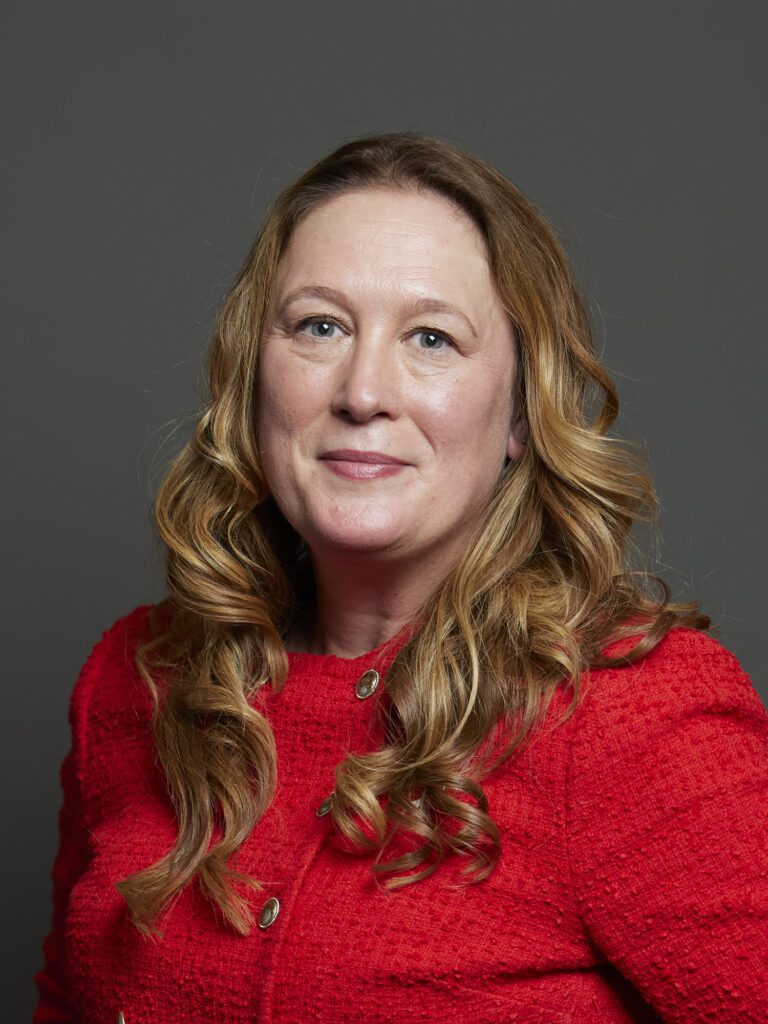
“But I absolutely love constituency work and attending events like the African Diaspora Day and the Milton Keynes Education Awards, and what I want to do, and that’s part of the reason why we’re doing the summer schools and why I want to not only visit every school in my constituency but to invite them to come to Parliament, is to show people what happens and how everything that goes on here should be about making their lives better.
“Too often, people just see politicians on the news shouting at one another and the work that is actually happening can get lost in the noise.”
The summer schools came about after it became clear how many young people were applying to do work experience at the constituency office. Unable to accept them all, a six-week programme was drawn up and two summer interns invited to run it. Each week, eight 15 to 18-year-olds from within the constituency will spend a full week in politics.
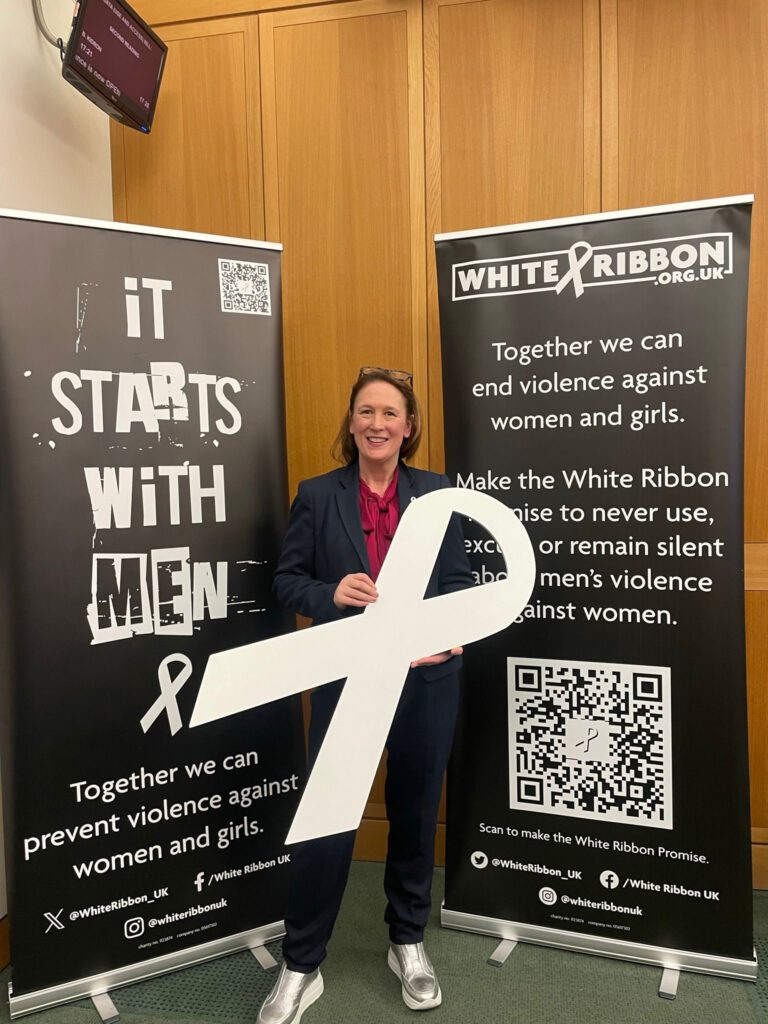
There will be a different theme each week, including violence against women and girls, education, housing and the environment. The cohort will begin the week by meeting local experts around the issue. During the rest of the week, they will visit the House of Commons, spend time talking to the public about the topic, and then use the remaining two days to compare and discuss the views they heard from constituents, learning how government policy could reflect them, and learning about how social media campaigns can help people get their voices heard, along with sharing information about what national and local government does for them.
“One of the biggest things that saddens me is when you see children who no longer dream,” said Emily. “Small children start off with big plans about what they want to be when they grow up, but then too often they don’t see people like them achieving, and have too many people telling them they can’t do something, and their life choices are so limited.
“There should be equity in education so that all children get a chance to achieve; education and opportunity is a passion of mine and we need to focus on culture change.”
The White Ribbon Campaign is a global movement for culture change, asking men and boys to pledge to end violence against women and girls. It was founded in 1991 after the École Polytechnique massacre when 14 female engineering students were killed by Marc Lépine because of his hatred towards women and their presence on the engineering programme.
As a councillor, Emily Darlington encouraged Milton Keynes City Council to pledge support for the campaign, and organisations including Thames Valley Police, MK Dons, Centre MK and the fire service followed suit and also pledged their support.
Individuals and organisations can pledge, with organisations agreeing to undertake reviews of everything they do, from HR and financial policies to staff awareness, with a focus on how the way they operate can help end male violence.
The campaign is aimed at addressing the root causes of violence and misogyny; the attitudes, behaviours and systems around gender norms and harmful expressions of masculinity.
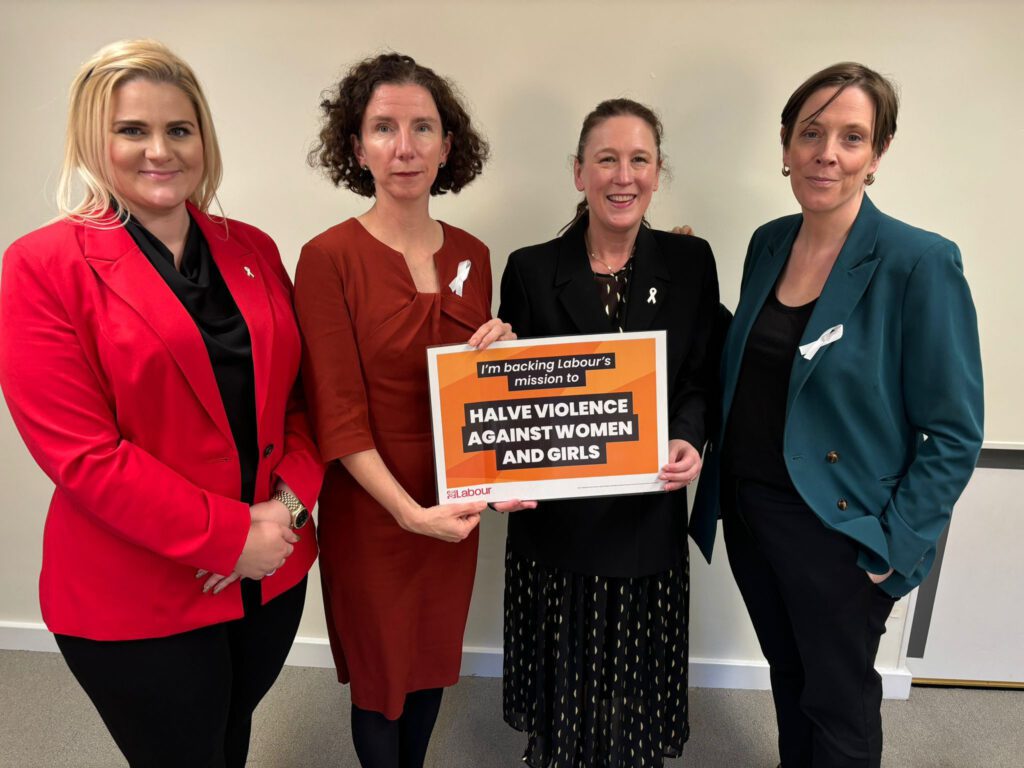
“Online, toxic masculinity is growing, it sometimes feels like we’re going backwards instead of forwards,” said Emily. “What the pledge means is agreeing to look at everything through a lens that focuses on ending violence against women and girls, because a culture change will benefit everyone, not just women.
“The view on social media of what a real man is can be so destructive to men. It is part of the reason we have so high suicide rates in young men and why they need champions and role models who challenge that view.
“When you see the misogyny that young men are learning, especially online, it’s shocking. There was a survey that showed most 14-year-old boys think it is normal for girls to cry during sex. With openness and good role models, who will say to them that it doesn’t have to be like that, we might be able to start conversations that show them a different way.
“And pledging to act to help women feeling safer makes good business sense. Women who feel comfortable working in your office, where they don’t have to face misogyny and abuse, are going to be more productive and loyal. And if you’re in the service industry, particularly the night-time economy, creating a space where women feel safe and want to visit, just makes sense.
“At constituency level I’m proud that Milton Keynes is the first White Ribbon city, and we’re close to getting agreement that Parliament will also pledge its support.
“Politics is about creating the society you want to live in. If someone asks me about going into politics, I tell them you shouldn’t go into politics because you want to be an MP, you should go in with a desire to bring about real change.”


